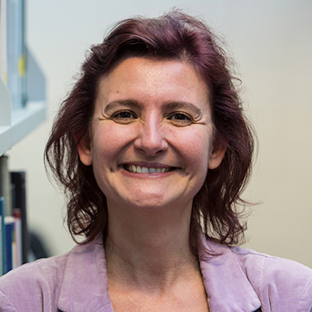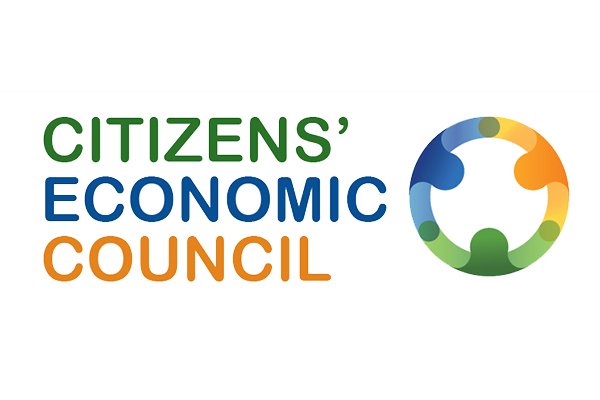The council
Our council of 50-60 citizens have started meeting. This is where you can catch up on what they've been discussing and take a look at the topics we've covered.
Day 1: Society, economy and markets
The first meetings of the council in London and Manchester set the scene for the Council members. They discussed their ideas about the purpose of the economy and began to consider, as a group, the values they believe should be at the heart of the future UK economy.
The Councillors explored the different types relationships within our society and, through an introduction to markets, the different ways we value and measure these relationships.
Along the way they were introduced to economic concepts and schools of thought, and encouraged to weed out and define jargon to ensure that the conversations were accessible to everyone in the group, regardless of their prior knowledge of economics.
The day was also designed to set the tone for the rest of the sessions; core to these deliberative sessions is the working relationship that the Councillors have with each other, providing space for everyone to have an input which is respected and listened to.
We were joined by several members of our Advisory Group and Economic Review Panel.
You can read more about the first London council meeting in this Financial Times article.
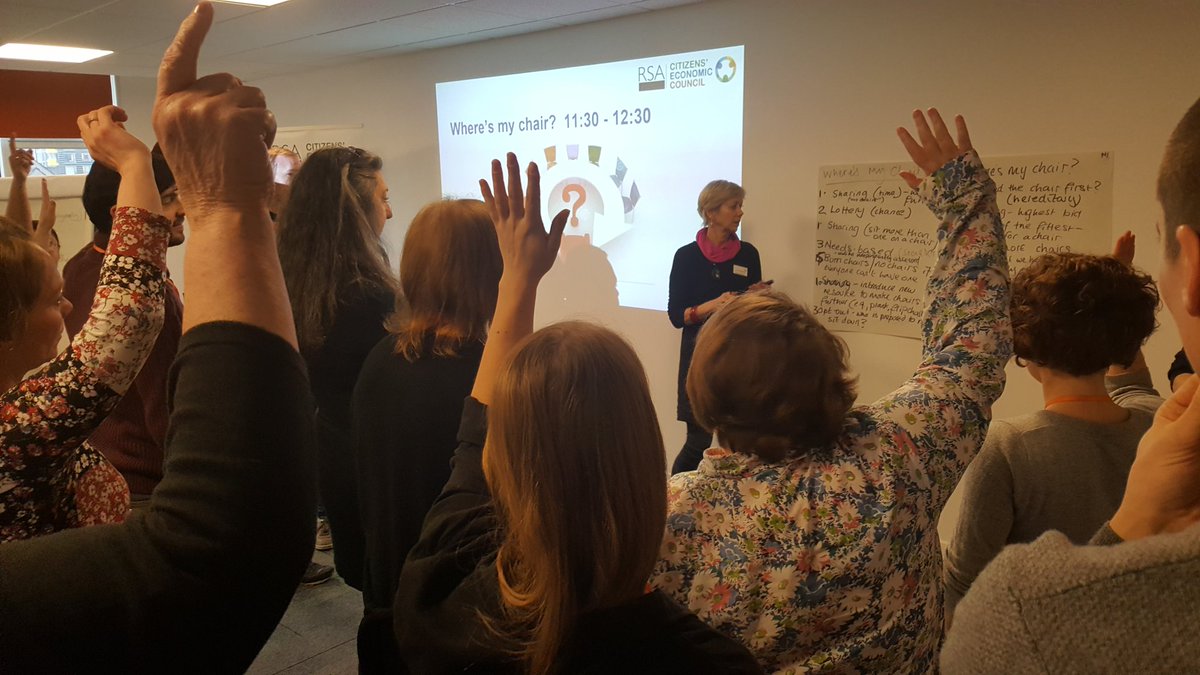
Rather than us each trying to do everything on our own, the economy is about us all working together: creating more than sum of the parts.
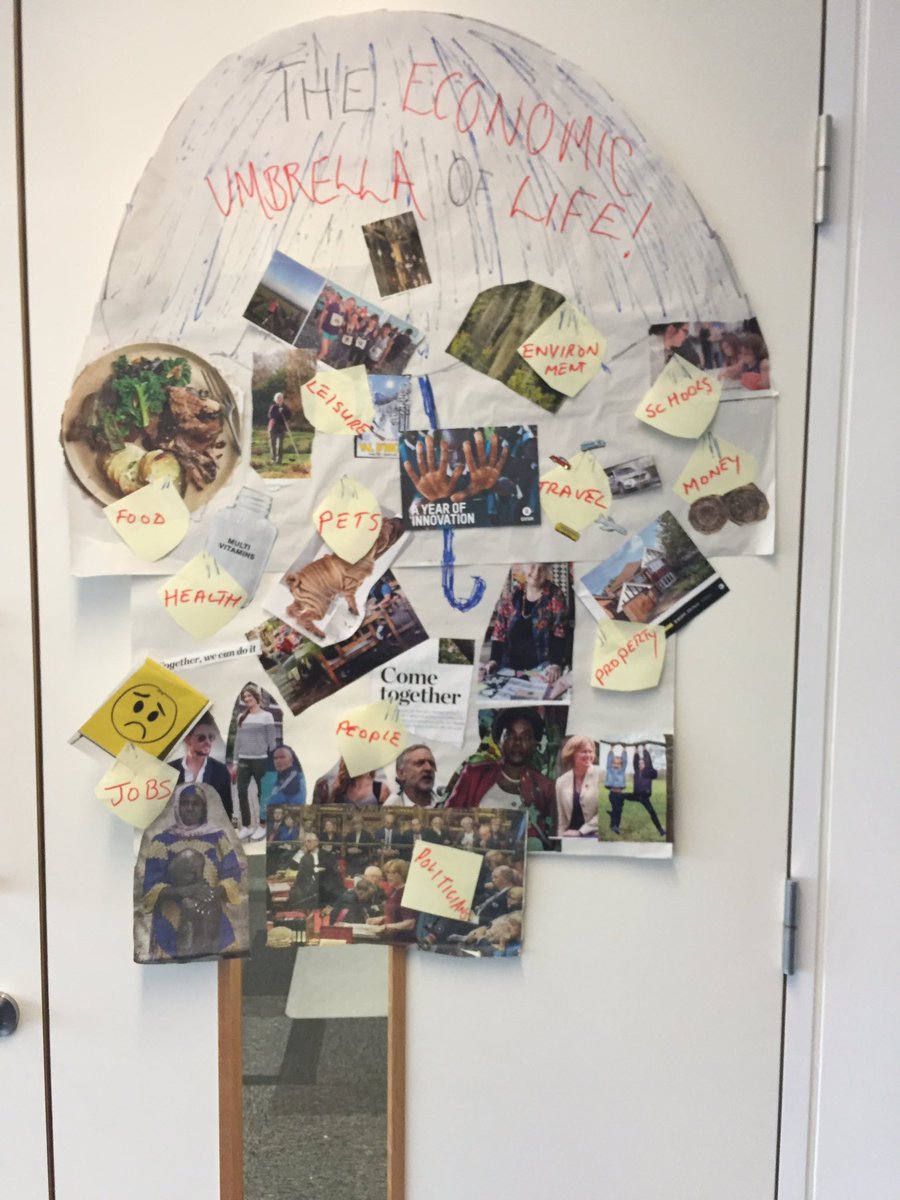
Day 2: Institutions
Using a map of the economy, which we created with Ecnmy for the DIY Economics Toolkit, we asked our participants to think about the different roles they play in the economy, and explored what their ideal economy looks like.
In the afternoon we held a panel session with experts working for some of the institutions that play an important part in our economy. This gave our citizens a chance to grill the panel on how their insitutions shape our economy, and ask them how they are working to serve the public.
London panellists:
-
Chris Naylor, Chief Executive at London Borough of Barking and Dagenham
-
Ratidzo Starkey, Head of Stakeholder Relations, Bank of England
-
Andrew Mills, Independent Financial Services Analyst
-
Pete Gladwell, Head of Public Sector Partnerships, Legal and General
Manchester panellists:
-
John Young, Bank of England, North West
-
Karen Patridge, Head of Client Services, AHC
-
Christian Spence, Head of Research & Policy, Greater Manchester Chamber of Commerce
-
Cllr Beth Knowles, Manchester City Council
I realise I do know a lot about the economy, but people don’t give us information in an easy digestible way so we can’t inform our own lives. My whole life is the economy, the economy is my life, we just don’t know enough information to understand it. If you want us to engage and open the dialogue, we need to have the information. Everything is affecting us and if we don’t know what’s going on we can’t change it.
Day 3: Work
This was an 'expert' heavy day - we invited along specialists from 3 different fields to support our council members deep dive into the sectors of food and agriculture, health, and transport.
Together they explored pressing issues in each sector, with experts being asked to explain how aspects such as funding, supply chains or regulation had an effect on how their sector functioned and its wider societal implications.
In the afternoon we looked at cross-cutting themes focusing on: technological change and how this is changing employment, the conflict between economic growth and the need to address climate change, and the relationship between politics and the media.
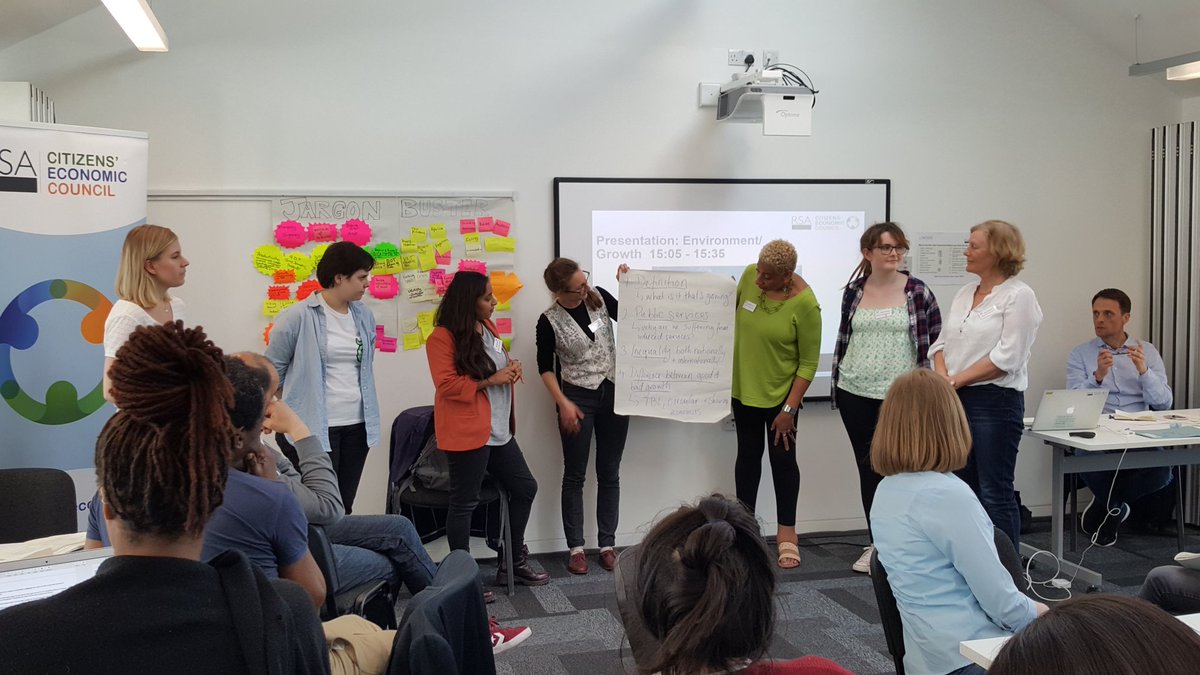
A very big thank you to all the experts that joined us for Day 3. As well as members from our Advisory Group and Economic Review Panel, we were joined by:
- Vicki Hird, Campaign Co-ordinator at Sustain
- Prof Corinna Hawkes, Director of the Centre for Food Policy at City University
- Candida Perera, Pricing Control Manager at NHS Improvement
- Dr Marion Gibbon, Deputy Director of Public Health at Southend Borough Council
- Dilip Joshi MBE, formerly Head of Retail Operations at Thames Trains and Operations & Safety at the Office of Rail Regulation
- Dr David Davies, Executive Director of Parliamentary Advisory Council for Transport Safety (PACTS)
- Frances Weetman, Winner of the New Statesman/Virago Women’s prize for politics & economics
- Amrita Rose, Policy Advisor on National Minimum Wage and Living Wage
- Nathan Koren, Founder and CEO Ltd of Podaris Ltd
- Sarah Lyall, Subject Lead Social Policy at the New Economics Foundation
- Corin Bell, Director of The Real Junk Food Project Manchester
- Dr Julia Steinberger, Associate Professor at the University of Leeds
- Hal Hodson, Technology Correspondent at the Economist
- Matthew Taylor, Chief Executive of the RSA
Accountability and transparency is so important, everyone knows the answer but no one has the bravery to sort it out. They need to put someone in charge of these things that know what they’re doing. But there’s a conflict between the short term motivation of the MP and the long term major infrastructure. We’re talking about sustainability but the system isn’t geared up to do that.
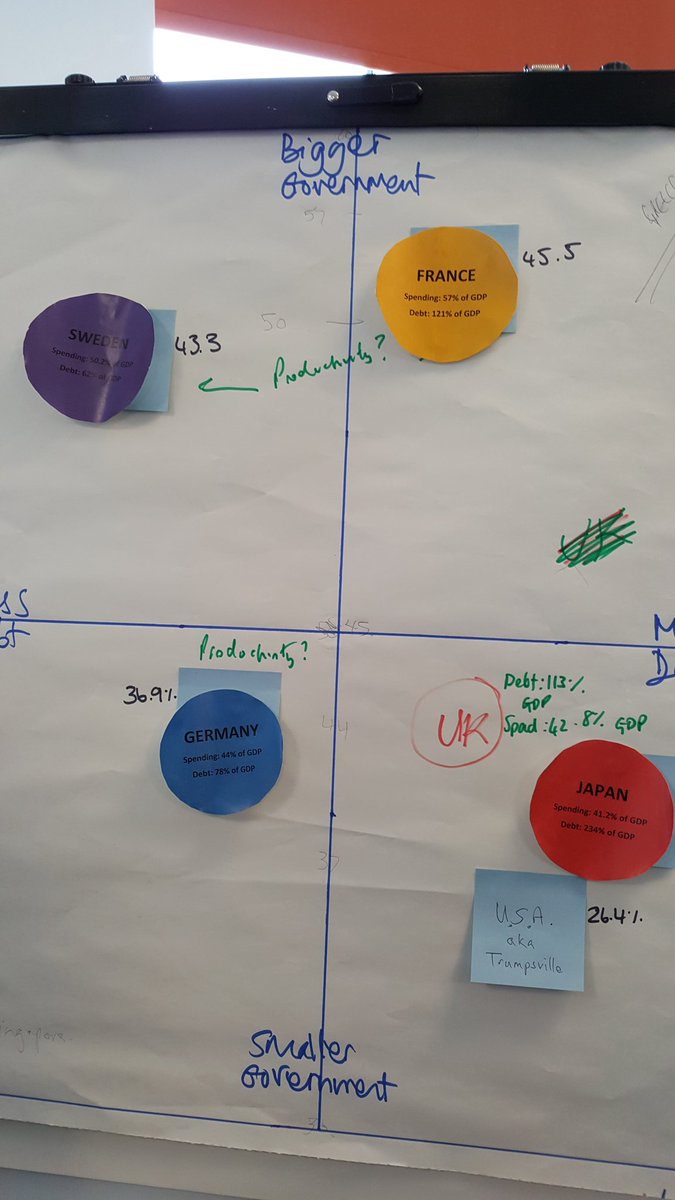
Day 4: Choices about the economy
It was a tough day of brain activity for our council members. In the morning we had them working hard to define exactly what they meant by each of the values on the list we had been refining since Day 1, to make a Citizens' Charter. We settled on 7 values, in summary these are:
Fairness, Social Justice, Innovation for Social Good, Sustainability, Citizen Engagement and Empowerment, Devolved Power and Decision-making, Accountability and Transparency.
We then looked at the ways different countries organised their economies by examining their tax and spending decisions and the level of inequality within their societies, drawing out what each country had decided to prioritise. The London group had one of our Economic Review Panel members, Tim Jackson, present briefly before supporting them to explore the different countries, and in Manchester the group were joined by Anthony Painter, Director of the Action and Research Centre at the RSA.
In the afternoon session we asked our council members to create their own policies whilst bearing in mind their values and considering whether there are trade-offs between them. The London group were fortunate to be joined by Soumaya Keynes, from The Economist, who explained the trade-off triangle she used when judging policy. Each triangle tip had a desirable condition: poverty busting, affordable to implement, and good public incentives – she explained how it is often possible for policy to meet two of these conditions, but rarely ever three. By the end we all felt slightly more sympathetic towards policymakers, and agreed policymaking is hard!
So there should be information so that everybody is aware of their rights and responsibilities. No it’s more about having a qualification to access those rights - but what’s the qualification? Maybe we’re trying to pack too much into a policy, because we’re trying too hard to fit everyone in.
Day 5: The Economic Summit
Our final deliberation day we brought together both groups from London and Manchester to meet in the middle, in Birmingham.
After a bit of speed dating to get to know each other, we shared our learning on trade-offs from Day 4 and then spent a very hard hour noting down all the barriers we've encountered to being involved in economic policymaking.
Fortunately the afternoon involved pooling together our thoughts to create action plans on how to overcome these barriers. We looked at different decision-making strcutures including: how a pension fund might decide on their investment strategy, how central government will negotiate Brexit, and how the Bank of England sets interest rates. In each of these structures we identified opoprtunities for where we can integrate more democratic decision-making processes, and talked about things like citizen panels, participatory budgeting and shadow boards.
We left on a positive note with a sense that our story wasn't over, with a promise from all of us to keep in touch and share ideas for how we can continue to build our economy into a more democratic one.
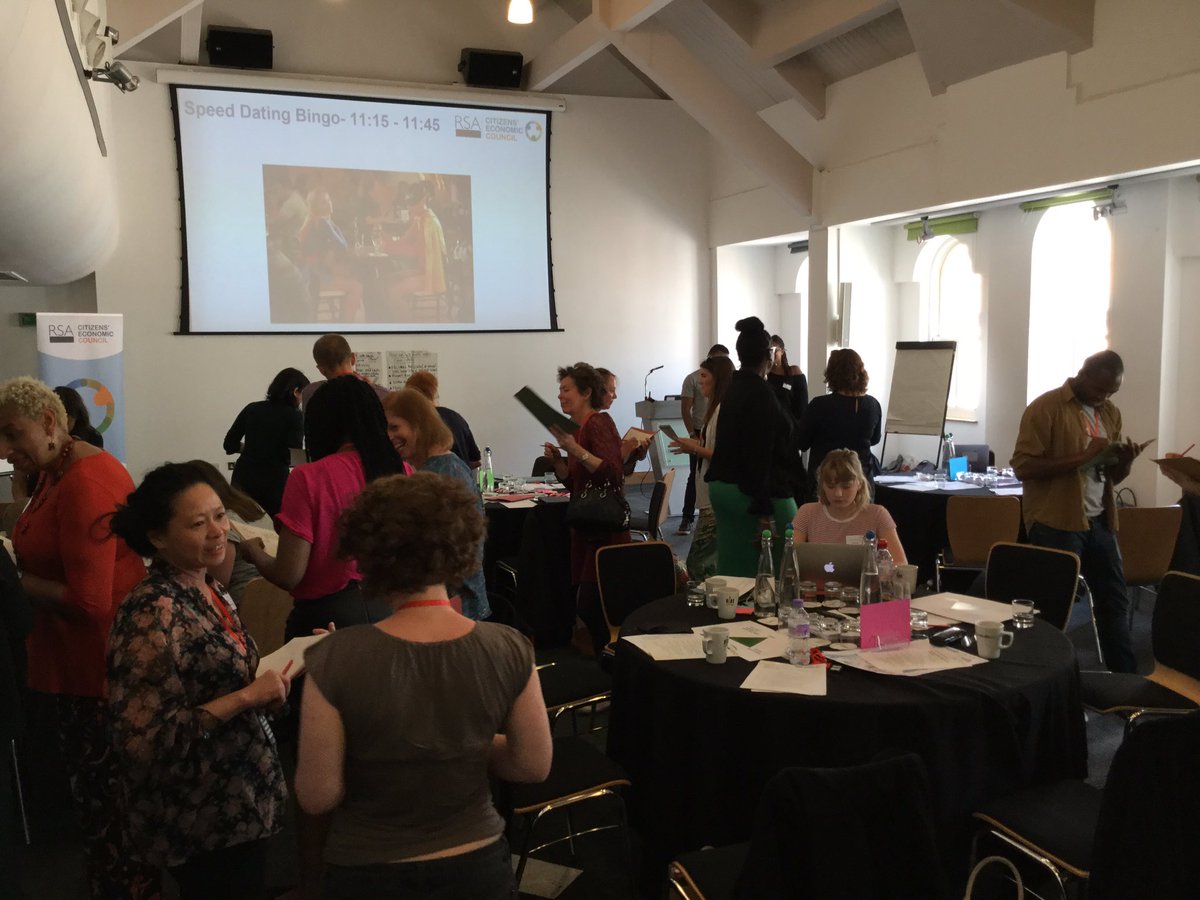
I found myself examining policy more than I would have usually. Is it a good use of money? I like the sound of it, I like the idea that we would want to support young people, but I started to examine that and wonder whether it is workable. It’s not just about the values, I want to hear the truth no matter how hard it is.
The Economic Review Panel
To prevent bias in any of the information we presented during the council, the materials we used were reviewed by our Economic Review Panel - a panel of economists from diverse strands of economic thought to ensure balance, independence and impartiality.
Several of them also supported the deliberation days by being economic experts on call and busting jargon that came up in discussions.
Find out more about the Economic Review Panel
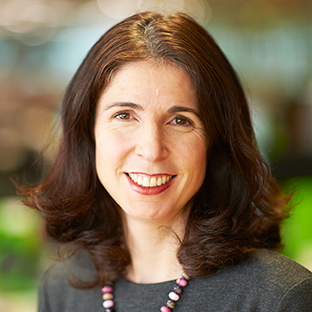
Rain Newton-Smith
Director of Economics, Confederation of British Industry
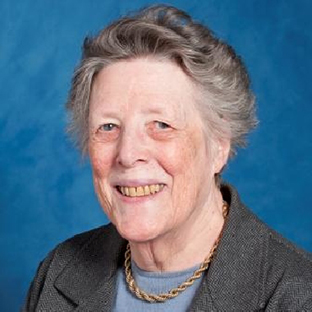
Prof Victoria Chick
Emeritus Professor of Economics, University College London
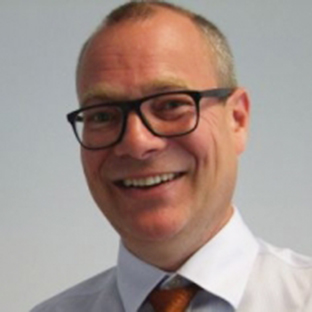
Dr Geoff Tily
Senior Economist, Trades Union Congress

Dr Jo Michell
Senior Lecturer in Economics, University of the West of England
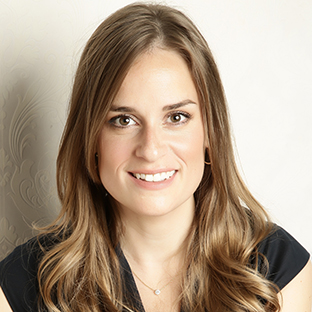
Nathalie Spencer
Behavioural Scientist, ING

Prof Ben Fine
Professor of Economics, School of Oriental and African Studies, University of London
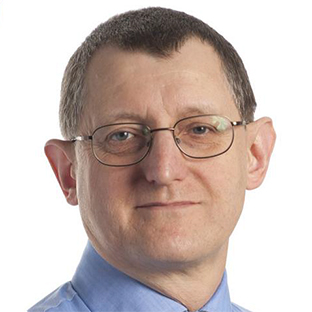
Dr Andy Denis
Senior lecturer in Political Economy, City University London
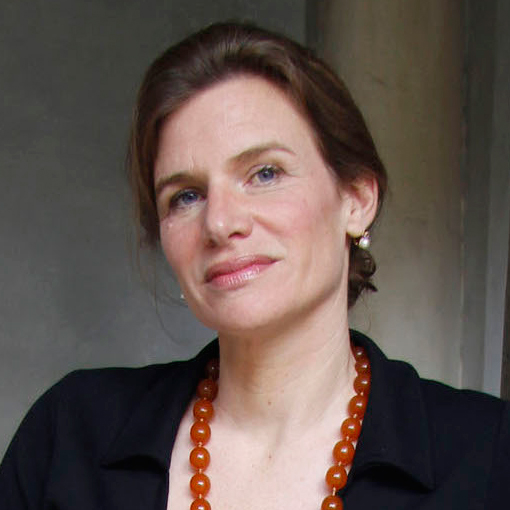
Prof Mariana Mazzucato
Professor in the Economics of Innovation and Public Value, University College London
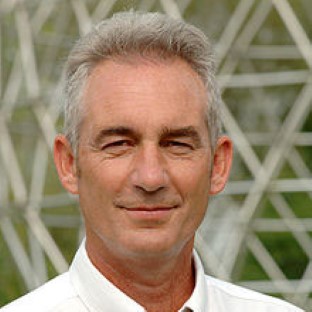
Prof Tim Jackson
Professor of Sustainable Development, University of Surrey, and Director of the Centre for the Understanding of Sustainable Prosperity
